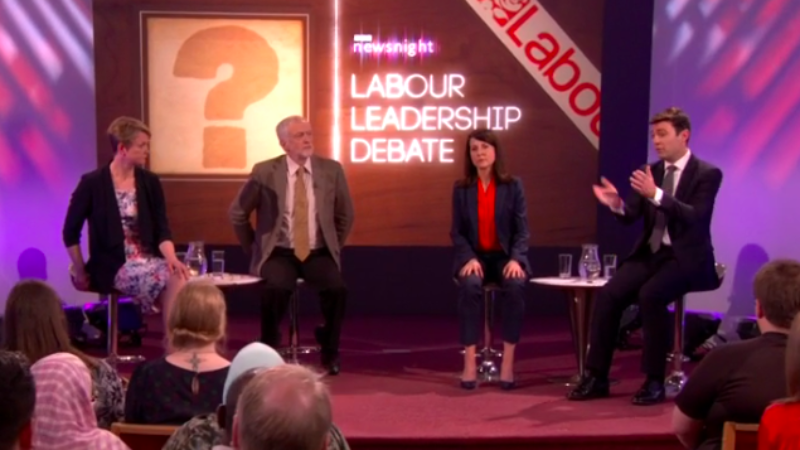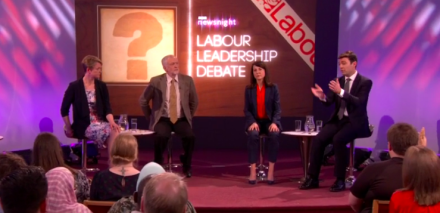
Last week, I laid out the potential paths to victory for the four candidates for Labour leader, setting out how it was possible for each candidate to win.

Having internal elections like this – especially so soon after the gruelling General Election campaign – September 12th must feel like a finishing post for the candidates and their teams. But of course, the winning of the leadership is really just the start. How should each candidate approach running the Party? What is their best course to victory in 2020? How do these differ?
Liz Kendall
Liz has challenged the Party at every stage of her leadership challenge. If elected, the Party will have accepted that challenge. Liz will be the hardest of the candidates for the Tories and their friends in the press to attack on grounds of fiscal responsibility as she has made paying down the deficit a central plank of her platform. She is favoured by the more centrist political journalists and commentators and again would have the example here of not having been in government before to offer them something new and fresh. This does not mean they won’t need to be courted and expect a central plank of a Kendall leadership to be resetting our relationship with the press.
If the Party elects Liz it will be because they believe she is the candidate that can win in the country. She would probably be the first to say she is not playing to the hearts of the Labour electorate but the concerns of the country. Given this is the case, she will need to prove she can win. The Party will expect her to be significantly ahead in the polls and will not accept any slippage.
She will need within the first 100 days of her leadership to announce big, popular and game changing policy. This should be economic in tone but find a way to take the fiscal responsibility argument and make it Labour. She went some way towards this in her recent speech to Reuters. It was an interesting mix of some of Miliband’s more social democratic tendencies (regional banks, workforce representation at all levels and a focus on skills and life long learning) using language he would have been deeply uncomfortable with. A big eye catching policy along these lines could have the dual effect of catching the country’s attention while giving activists some positive red meat for the doorsteps.
Jeremy Corbyn
Jeremy is probably not the candidate who is going to appeal to the kind of Tory voters we need to win in regions like the East and the South West. However, he does appeal to the British radical tradition and could well be the man to stem the flow of voters on our left to the Greens in England, Plaid Cymru in Wales and the SNP in Scotland (and yes, I accept that the SNP in policy terms are not significantly to Labour’s left, but in their positioning they very much sell themselves as being so). Add in the retention of a large portion of the votes of Lib Dems won back this time and those UKIP voters who thought the mainstream parties were too much the same and that’s not an insignificant voting block. It will be this alliance that Jeremy will need to court if elected.
There will be those who will advise Jeremy to run to the centre. That would be a mistake. If Corbyn is what his Labour selectorate wants then he should be what he is and always has been. His is a politics of the hard left and the public will not buy any sharp gear changes now. It will be a test of how well the left can make their case to a country that has previously been sceptical. But it will be the only way for this man of principle to behave as leader.
Yvette Cooper
Yvette is widely admired as a safe pair of hands. However her years of experience and previous time in government could work against her as much as they are assets. She will need to prove she is more than a caretaker and that she is not overly wedded to the solutions of the past. Het focus on child poverty – for example – is admirable and right, but to make an impact she will need to develop this beyond the reinstating of New Labour targets and a focus on tax credits.
Yvette is a very talented politician. She will need to draw more deeply on these talents if she is to get beyond her own safe zone. During her ministerial career Cooper has covered a really broad range of briefs and has been widely admired for walking the difficult Labour tightrope between liberalism and small ‘c’ conservatism on crime and immigration policy as Shadow Home Secretary. He clear passion for the child poverty and early years agenda will serve her well as Leader. It will be vital for her to use her own imagination and the work of others to define what Cooperism is beyond the best parts of the last Labour government. Key to potential success for Yvette will be in surprising people and pushing boundaries both left and right.
Sexist though it is, Cooper will also be judged through the prism of her husband. Putting clear distance between herself and the policies of the last government – particularly the Brown years will help her to mitigate this as Ed Balls finds his own way to contribute more quietly.
Andy Burnham
Andy too has a comfort zone that will be challenging when it comes to his leadership. He has made central to his pitch his vision of a strong and active state remaining the key player in helping everyone to get on. But in an era where the state is receding and its spending power is sorely limited, how does this muscular use of the machinery of state translate at a leadership level?
A Burnham leadership will need to prove the agility of the state and his own willingness to challenge it where it can be either overbearing or a vested interest. His work over the Hillsborough Inquest campaign shows him more than capable of doing that but he will perhaps need to take those instincts into areas that are less familiar to this football-mad politician.
The press and the Tories will try to paint Andy as Miliband Mark 2 and stemming this from day one will be a key challenge. One key mistake Ed’s team made that Andy’s must not would be to avoid soft media. I want to see him on the chat show circuit from day one selling himself as the personable bloke he is as well as selling Labour’s story to the nation. Andy will be considerably harder to paint as a North London geek – but he will need to forcefully imprint his personality on a nation that isn’t yet engaged with Labour.
As human beings, all the candidates have strengths and weaknesses and they will all need to make sure they are properly aware of these and balancing them within their teams. This contest is a long and tough fight, but it will be as nothing to the much longer and much tougher fight ahead. To whoever wins good luck. We all need you to succeed.




More from LabourList
‘Labour must confront the crisis of first past the post before it’s too late’
Unite to debate affiliation with Labour Party at conference next year
Miliband tops LabourList Cabinet league table, with gender divide in PM approval